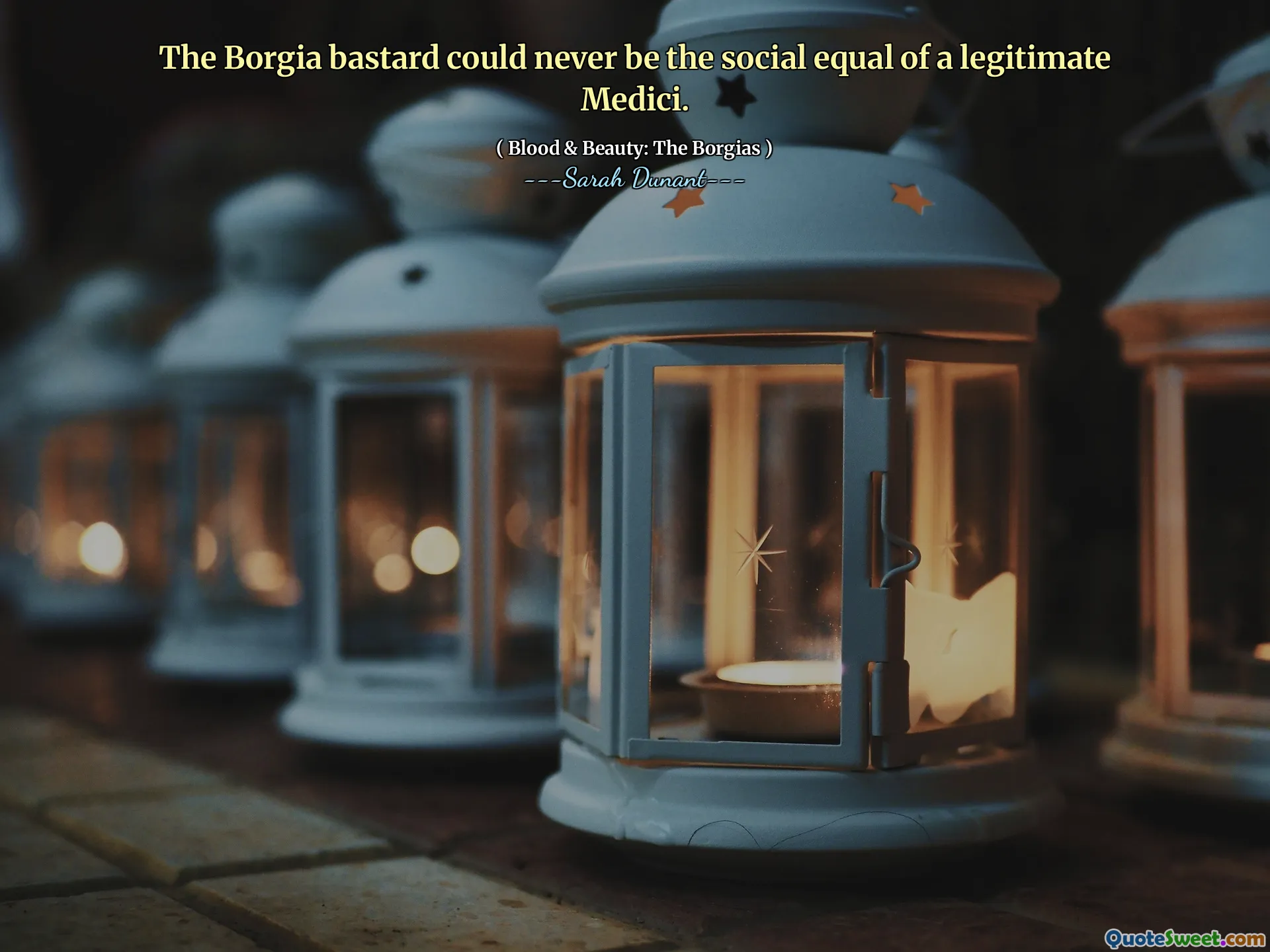
The Borgia bastard could never be the social equal of a legitimate Medici.
The quote highlights the far-reaching social hierarchies and the importance placed on legitimacy in Renaissance Italy. It suggests that despite the notoriety or perhaps even the power a Borgia might wield, their social standing remains inferior compared to that of the Medici family, who represented stability, wealth, and noble heritage. This distinction between legitimacy and social acceptance was pivotal during this period, as heritage and bloodlines often determined one's social capital more than wealth or influence alone. The Borgia family, notorious for their political machinations and morally questionable pursuits, were often seen as outsiders or those with questionable noble legitimacy, which hampered their social integration despite their ambitions and power. Conversely, the Medici secured their reputation through mercantile success, political alliances, and strategic marriages, which conferred a genuine social legitimacy that transcended mere wealth or political influence. This dichotomy reflects broader themes of legitimacy, social stratification, and the importance of noble birth that persisted for centuries. The quote can evoke a reflection on how societal perceptions shape the destiny of families and individuals, emphasizing that social rank is often an inherited status, resistant to change regardless of an individual's personal achievements or deeds. In the context of the Italian Renaissance, this distinction underscores the enduring importance of noble lineage and the sometimes superficial nature of social acceptance and prestige. The Medici’s ability to maintain and elevate their status despite originating from a merchant background encapsulates their unique position within the social fabric of Florence and beyond, whereas the Borgia’s reputation was forever shadowed by accusations of nepotism and corruption.






